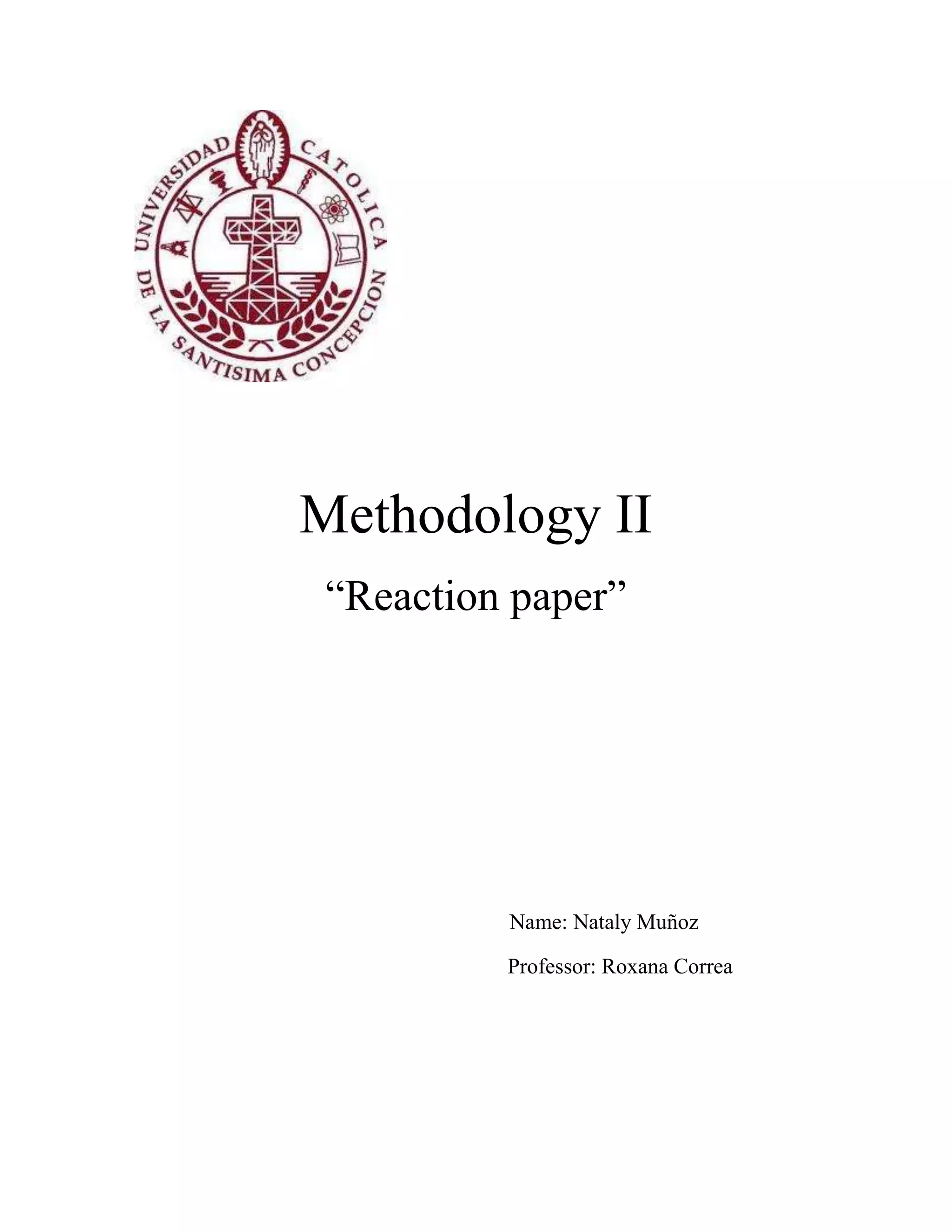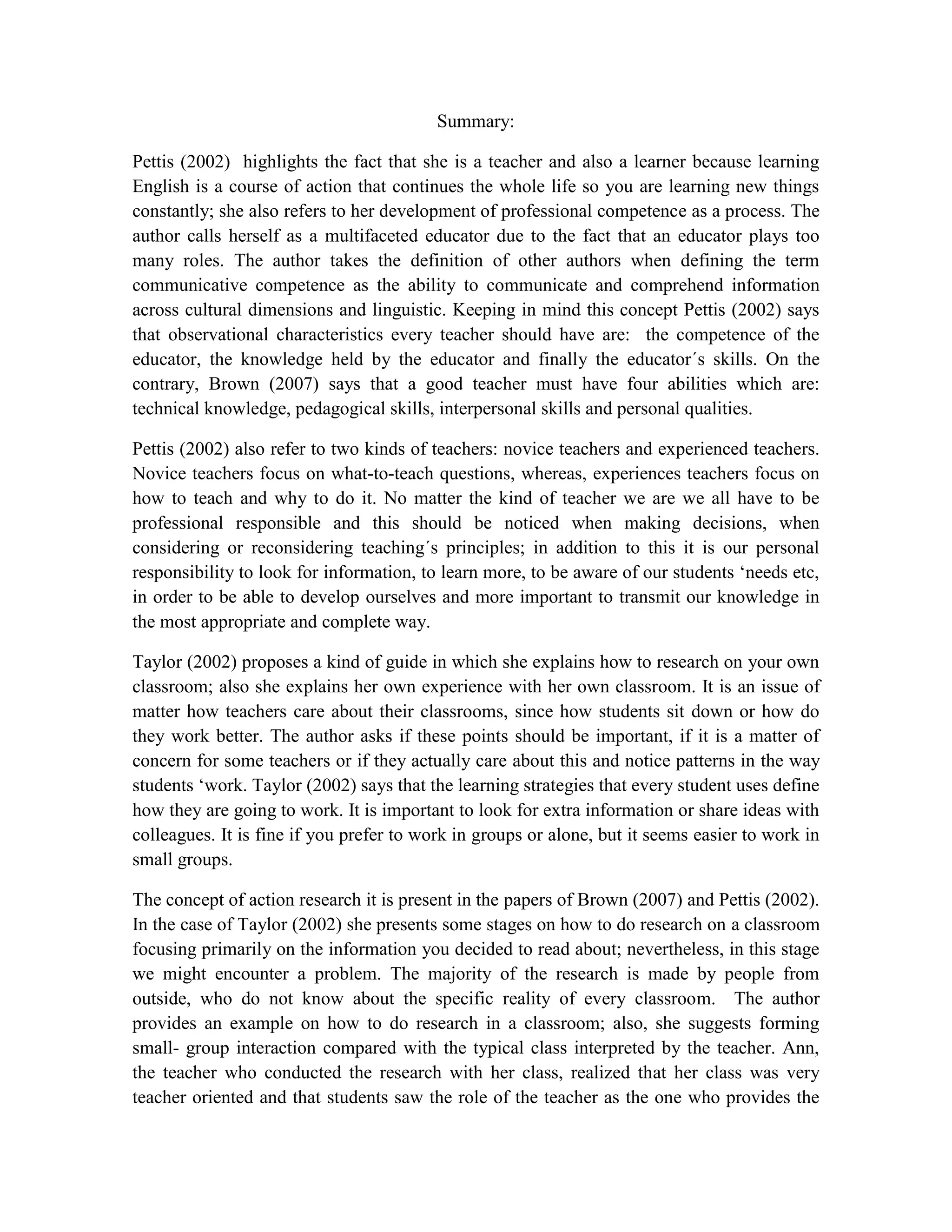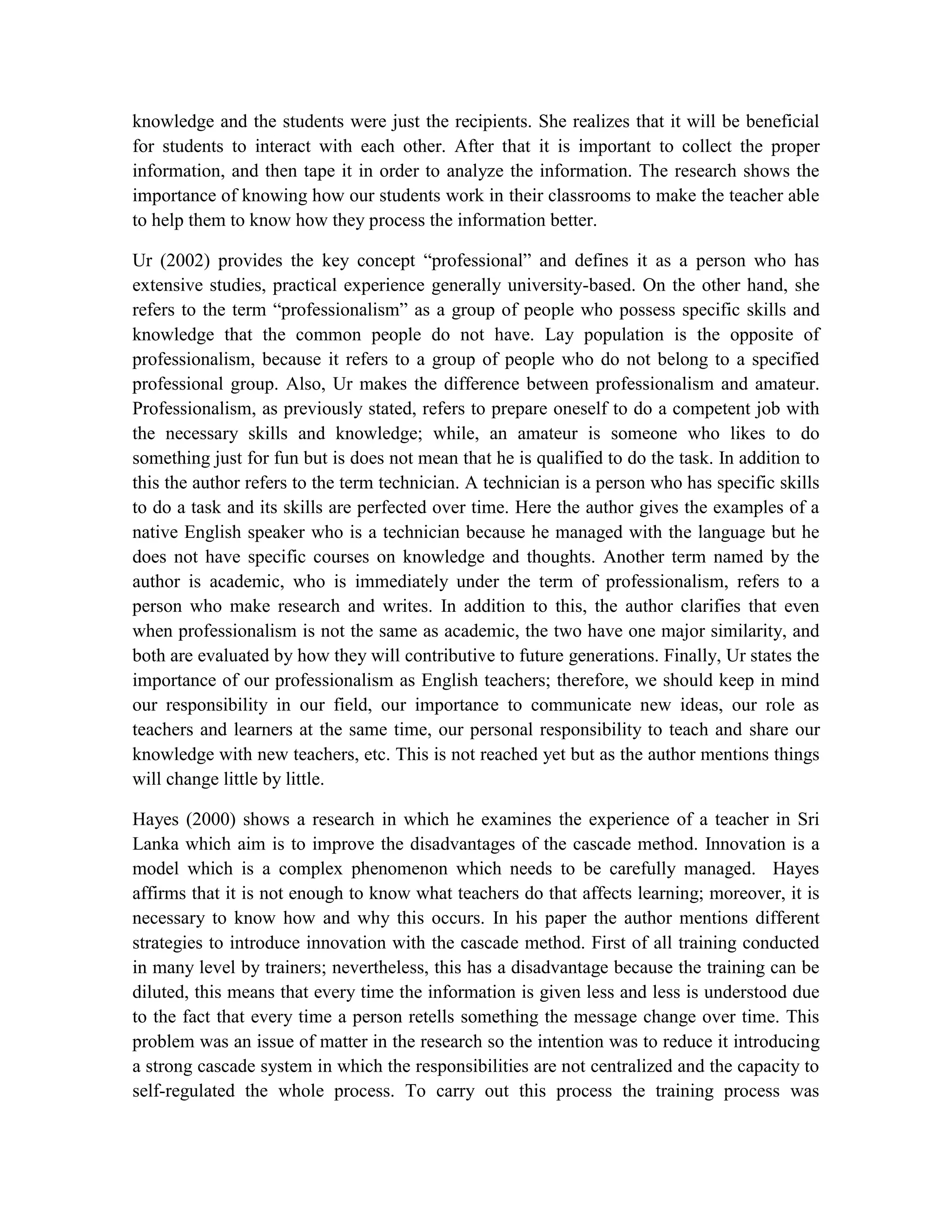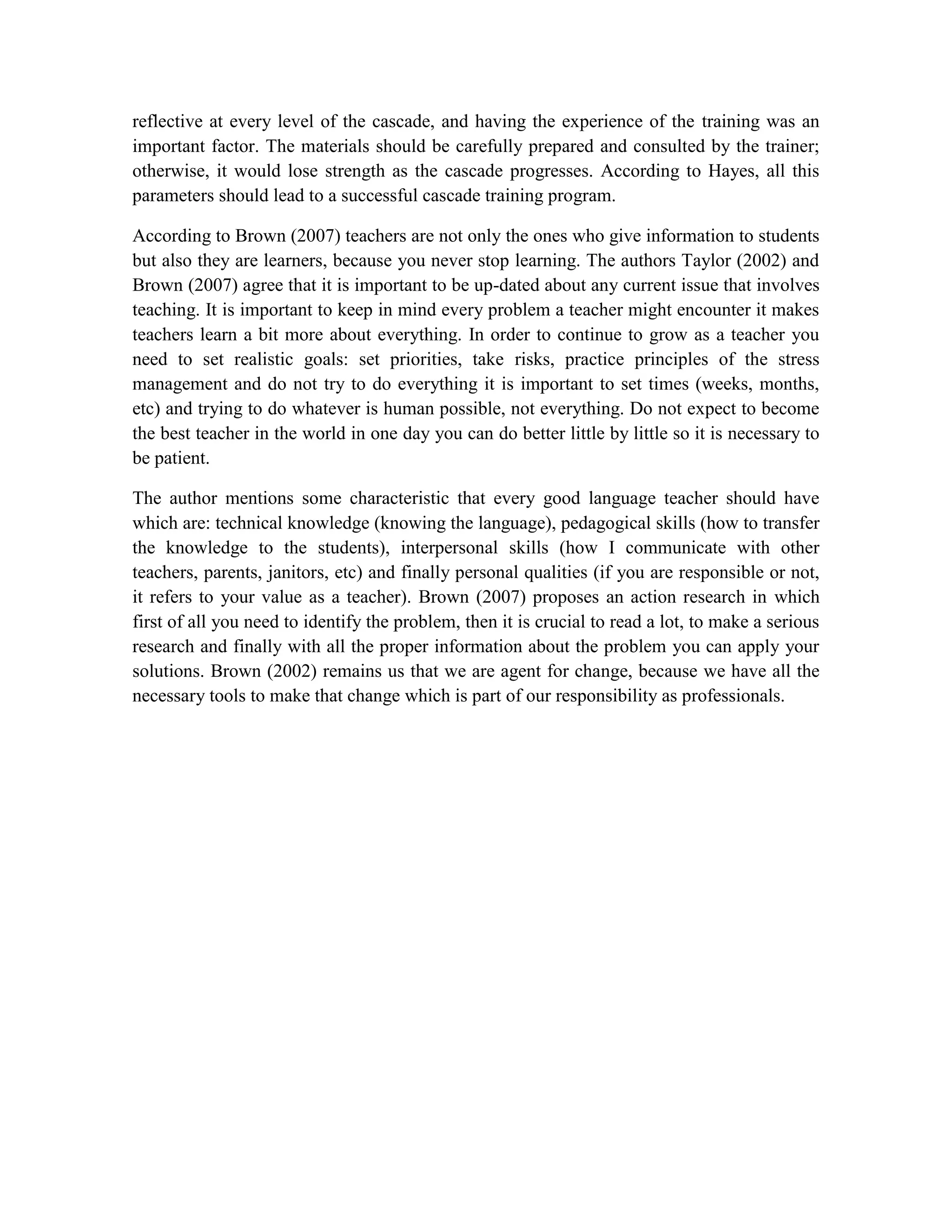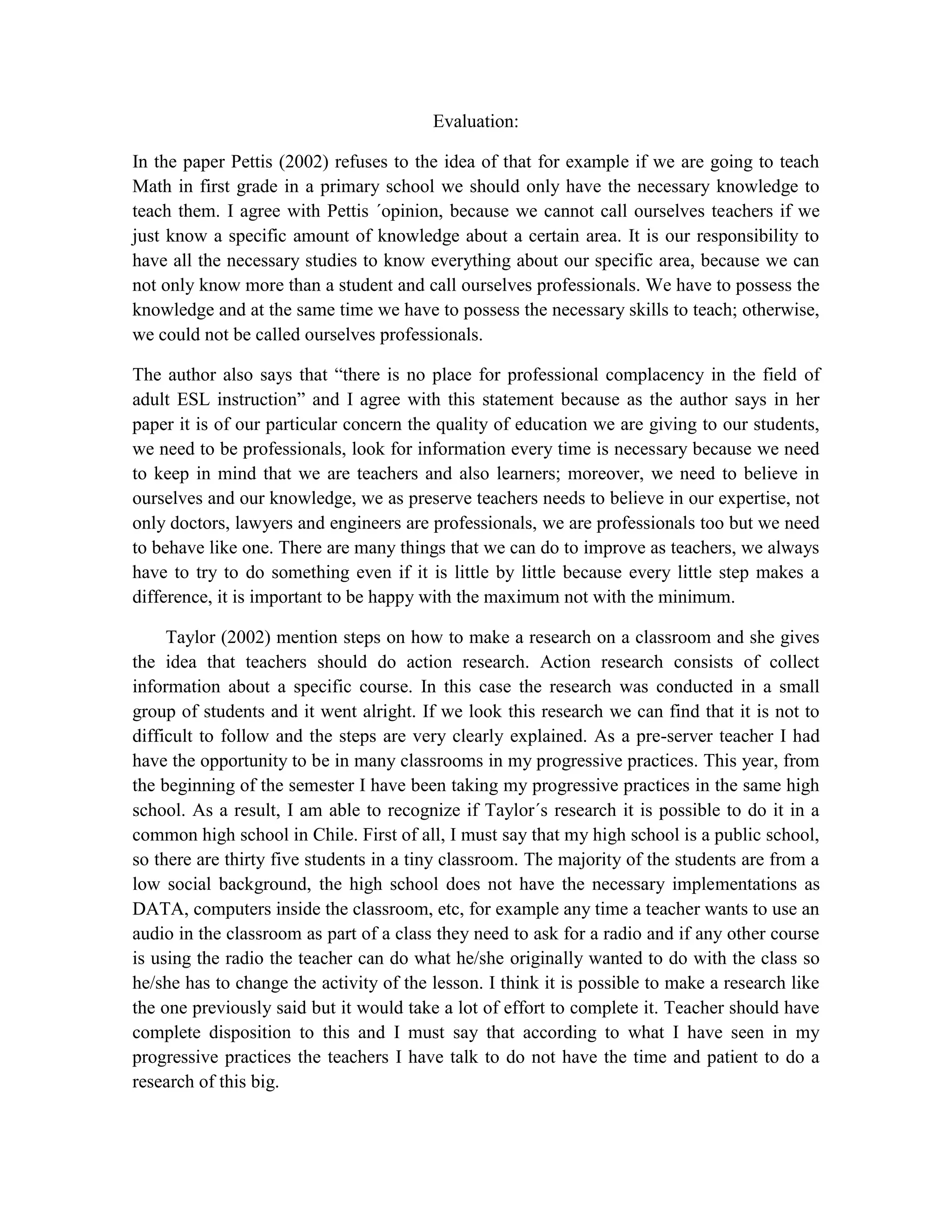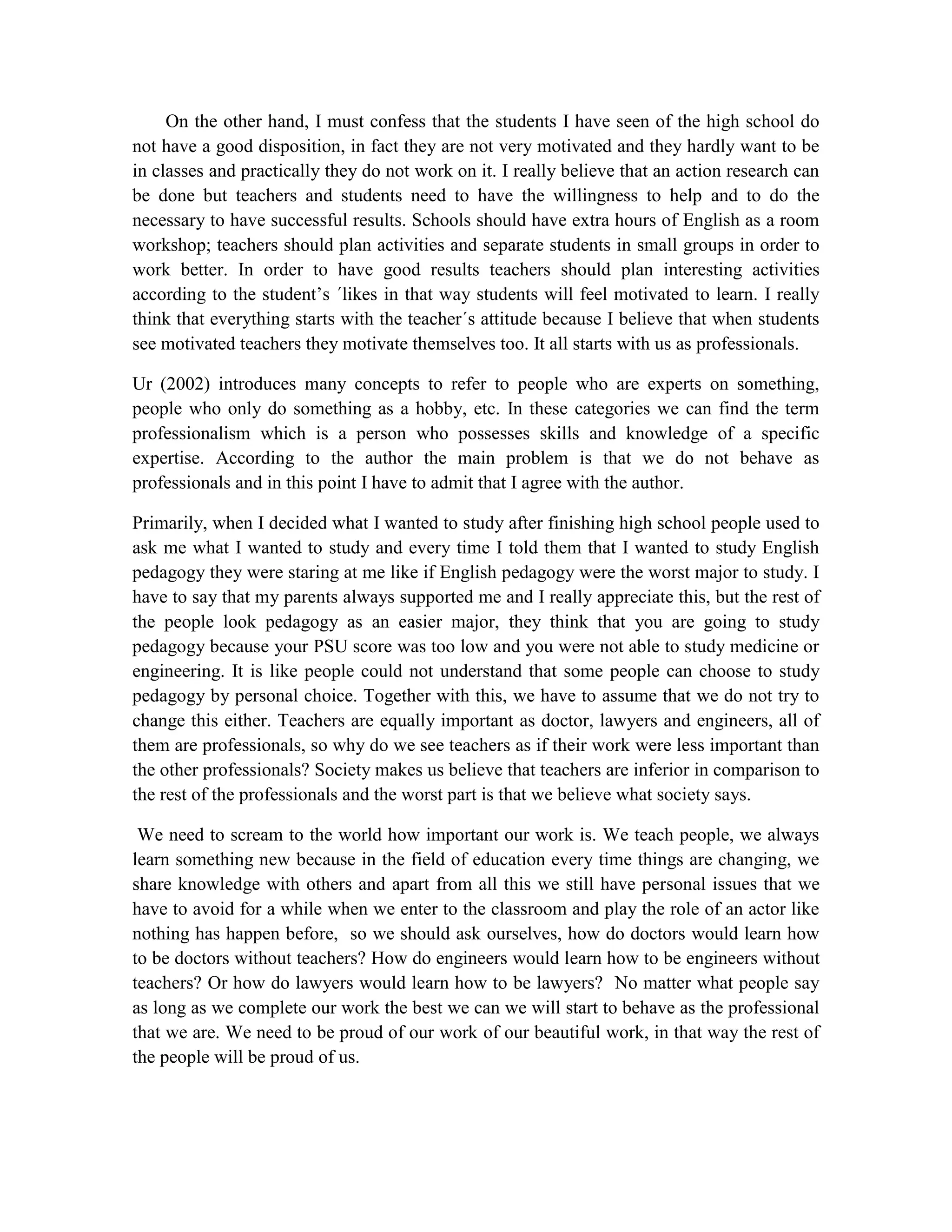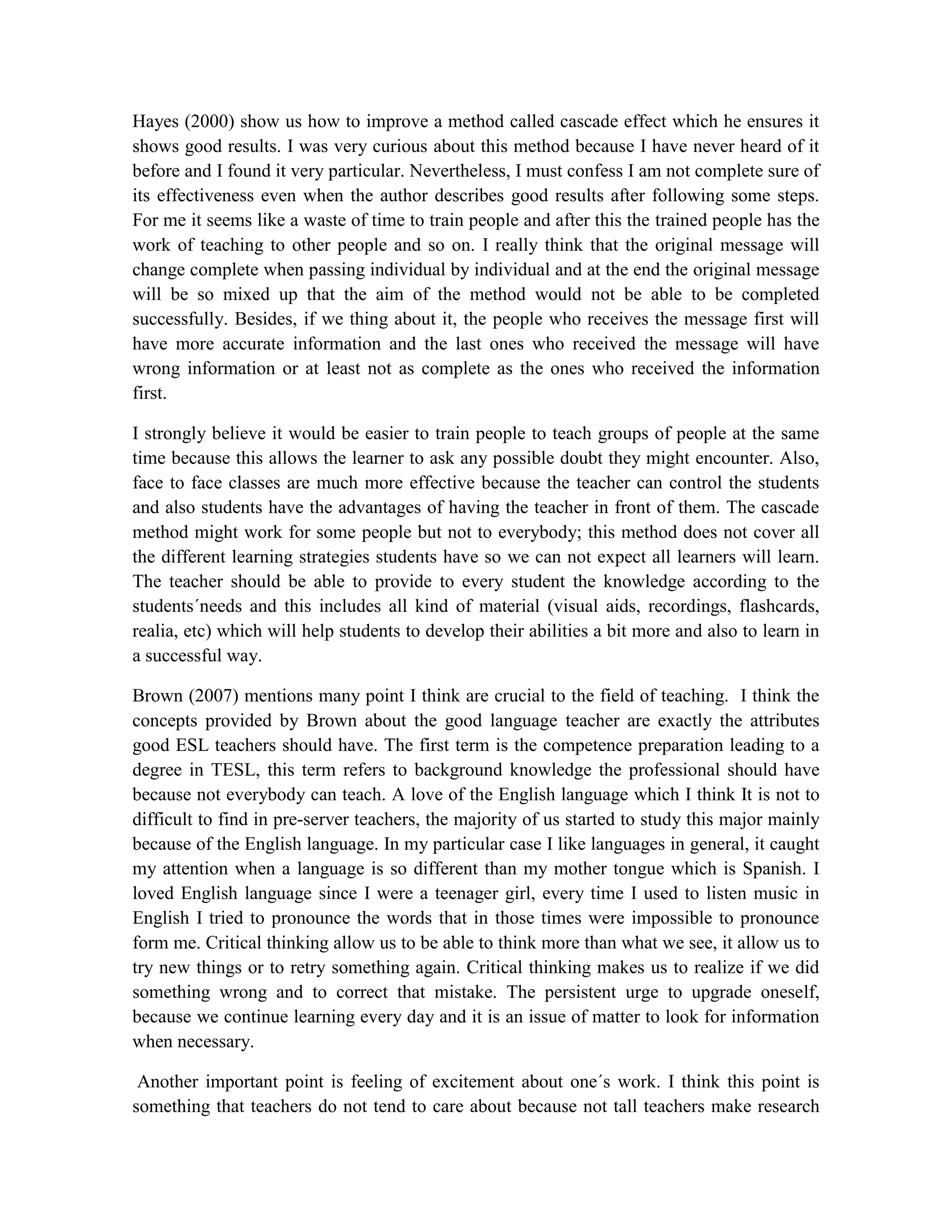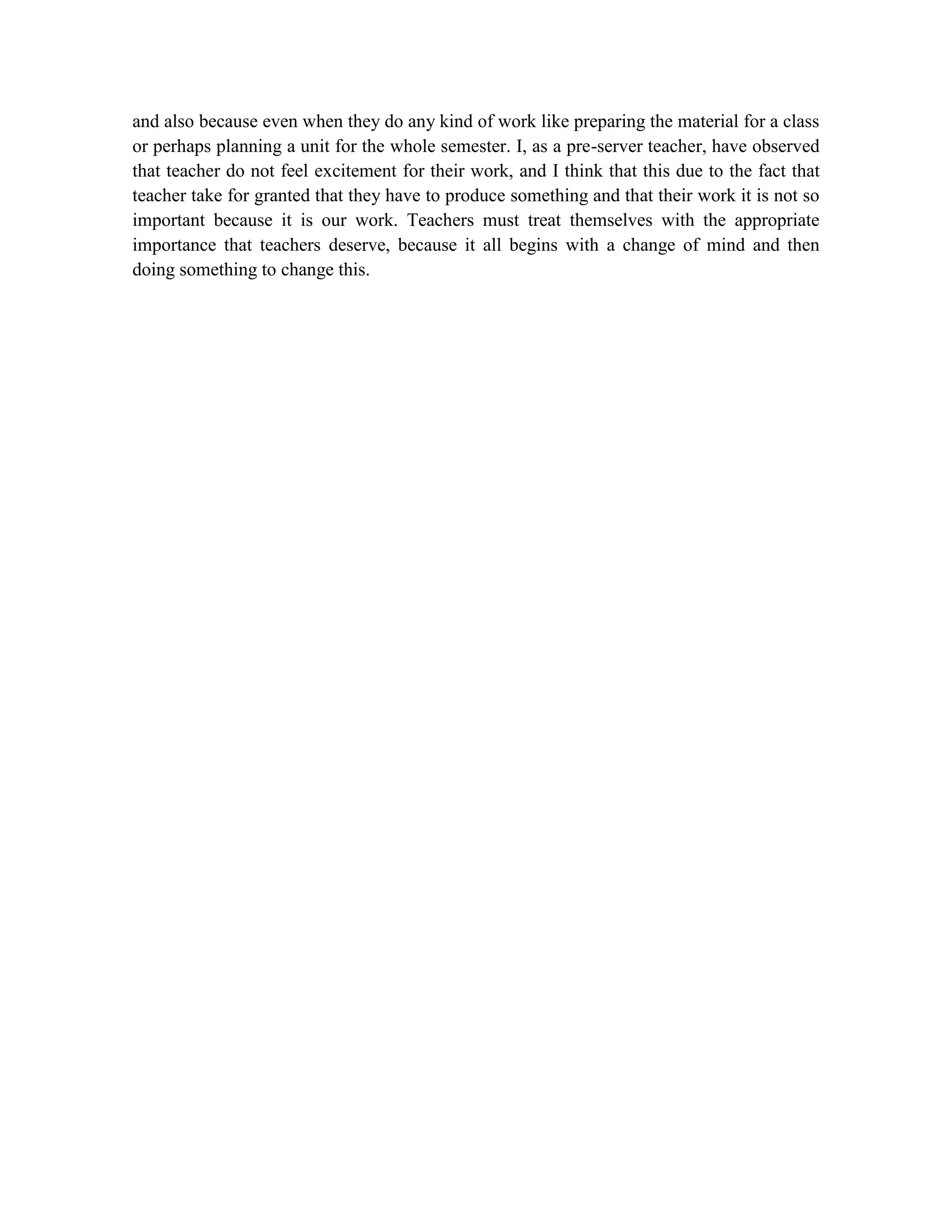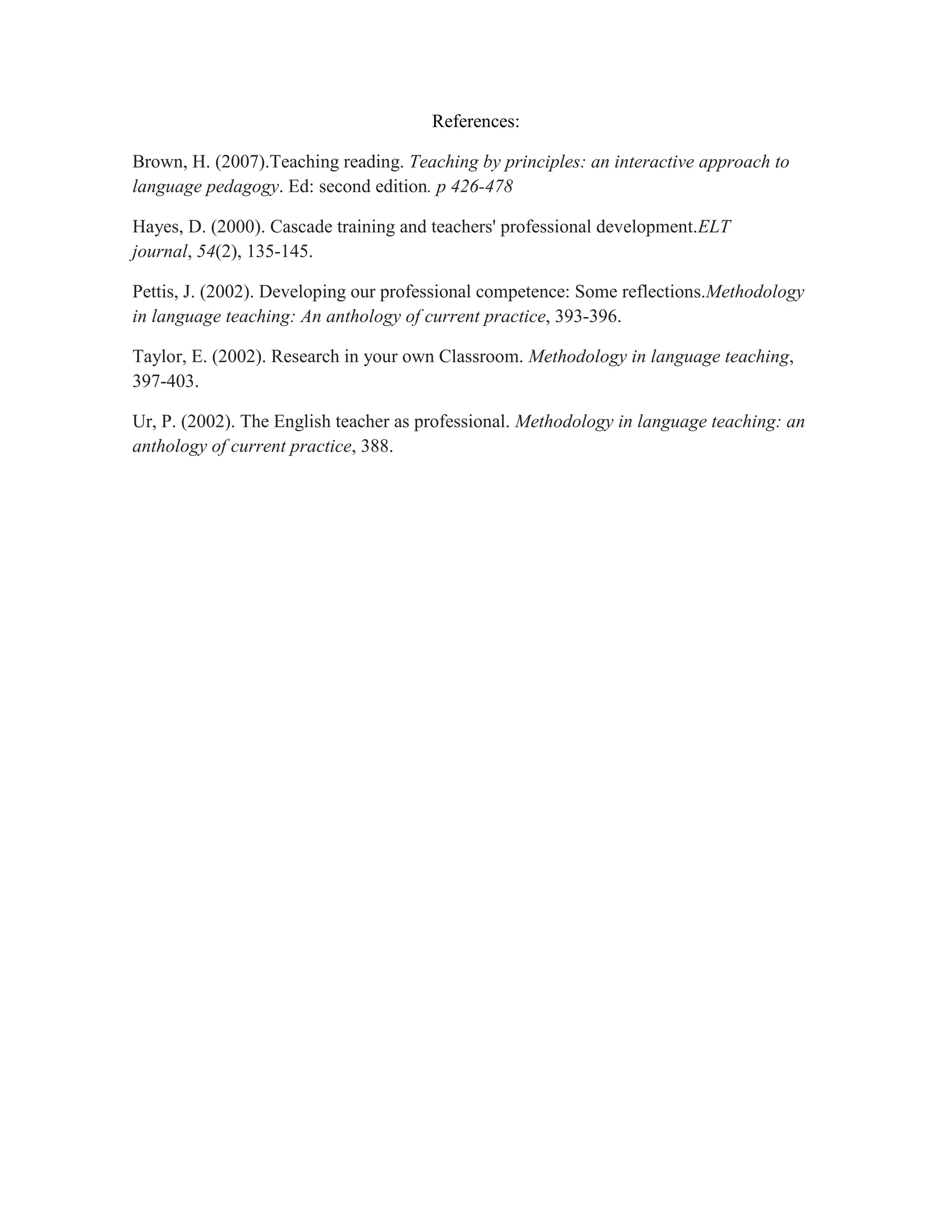The document summarizes several papers on teaching methodology. It discusses concepts like communicative competence, the characteristics of novice and experienced teachers, action research methods for the classroom, different types of professionals, and strategies for introducing innovations. Several authors propose that teachers should focus on lifelong learning, conduct their own research in the classroom, and view themselves as both teachers and learners. The document also reflects on the importance of teacher competence, skills, knowledge, qualities, and maintaining an attitude of professionalism.
